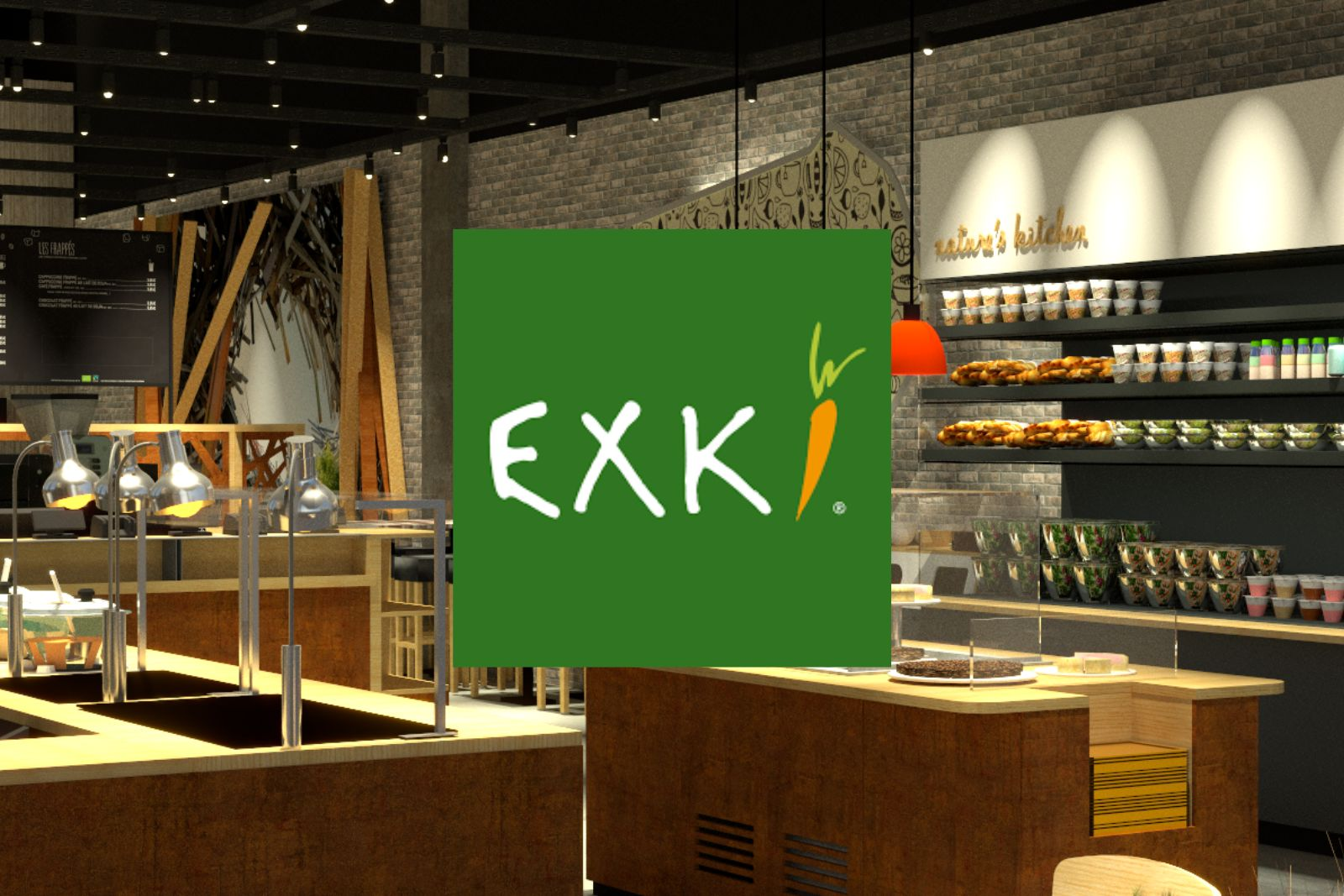You manage your store daily, but these "small irritants" are silently eating away at your margins: Excel exports, re-entries, slow promotional rollouts, stockouts that hit at the worst possible moment. While you're putting out fires, competitors are moving to real-time management and gaining agility. Direct question: how many sales are you losing without knowing it due to poorly synchronized inventory? This checklist exposes the signals that many underestimate... and that explain very real performance gaps.
Methodology: How These 12 Signals Were Identified
These signals come from consolidated field feedback:
- Express diagnostics conducted at retailers of various sizes and sectors (fashion, food, equipment, etc.).
- Analysis of omnichannel KPIs (inventory, margin, conversion) and POS/e-commerce logs.
- Synthesis of recurring patterns on the integration side (processes, data, tools).
Objective: isolate predictive markers of inefficiency and rapid-impact levers.
Retail 2025: Automation Is No Longer a Luxury
Post-COVID, omnichannel is the norm. Yet two-thirds of retailers still manage with spreadsheets, while top performers automate, ensure data reliability, and accelerate execution. The challenge isn't "tech for tech's sake," but decision speed: see, decide, and act the same day. This checklist (5 minutes) helps you measure your risk level and prioritize highest-impact projects without disrupting operations.
The 12 Signals to Monitor
Format per signal: ⚠️ Why it's critical - 💡 Impact - Idealis contribution (integrator + tooling)
Block 1: Operational Signals
1) You spend more than 2 hours/day on Excel
The signal: Manual dashboards, exports/re-imports.
⚠️ Errors, competing versions, slowed decisions.
💡 30–40% administrative time saved.
Idealis contribution: KPI framework + Smart Analytics connected to Odoo, real-time dashboards.
2) Your stockouts are unpredictable
The signal: "We never have the right product at the right time."
⚠️ Lost revenue, declining NPS (customer satisfaction indicator), overstock elsewhere.
💡 Intelligent forecasting, proactive alerts, automatic replenishment.
Idealis contribution: forecasting model by category, threshold rules and multi-site auto-replenishment.
3) Each new point of sale = headache
The signal: Reinvented procedures, heterogeneous configurations.
⚠️ Hidden costs, opening delays, inconsistent quality.
💡 "Copy-paste" deployment of winning processes.
Idealis contribution: Multi-store Odoo, master repository, standardized configuration kits.
4) Your teams re-enter the same data
The signal: Duplications between ERP, e-commerce, POS, marketplace.
⚠️ Product/price inconsistencies, team demotivation.
💡 Single source of truth via PIM (Product Information Management), automatic synchronization.
✔️ Idealis : PIM + connecteurs marketplace, gouvernance des données.
Block 2: Financial Signals
5) Your accounting takes more than 5 days/month
The signal: Document collection, matching, manual reconciliations.
⚠️ Late reporting, "blind" management at month start.
💡 Automation of recurring entries, OCR (automatic character recognition), approval workflows.
Idealis contribution: Odoo accounting schemas + Smart Analytics → D+1 closing.
6) Impossible to see margin in real-time
The signal: Consolidated margin view unavailable day-to-day.
⚠️ You discover margin drift 3 weeks after the fact (misconfigured discounts, unallocated logistics costs, standard cost errors).
💡 Transaction-level margin calculation, threshold/anomaly alerts.
Idealis contribution: margin rules engine, automatic cost allocation, live margin dashboard by channel/product.
7) Budget forecasts "by gut feeling"
The signal: Budgets extrapolated as "last year + 5%" without detailed analysis.
⚠️ Overstock/stockouts, misallocated capex, unrealistic targets.
💡 Predictive models (seasonality, weather, promotions, cannibalization), A/B scenarios.
Idealis contribution: modeling workshops, simulation, BI ↔ ERP integration.
8) You discover your KPIs 2 weeks late
The signal: Weekly manual consolidation.
⚠️ Late reaction to traffic, basket, conversion.
💡 Daily (even hourly) KPIs + push alerts on deviations.
✔️ Idealis : pipeline data temps réel, cockpit DG mobile.
Block 3: Customer/Team
9) Your customers wait for product availability
The signal: No store-by-store visibility.
⚠️ Lost sales, negative reviews.
💡 Reliable availability promise, ship-from-store, smooth click-and-collect.
Idealis contribution: inventory/channel orchestration, allocation rules, "available in store" product page.
10) Your teams spend more time "looking for information"
The signal: Incomplete records, scattered documents.
⚠️ Declining productivity, long onboarding, POS errors.
💡 Centralized access (prices, attributes, media), instant search.
Idealis contribution: PIM + knowledge base, role-based views.
11) Impossible to launch a promotion in less than 48 hours
The signal: Multiple configurations, manual validations.
⚠️ Lack of commercial agility, missed opportunity windows.
💡 Pre-configured promotion playbooks, auto-targeting, omnichannel distribution.
Idealis contribution: promotion rules engine, dynamic CRM segments, email/SMS automation, campaign deployment SLA (guaranteed service level).
12) You make decisions on "impressions"
The signal: Meetings without fresh data.
⚠️ High risks, bias, unmeasured initiatives.
💡 Data-driven management: recommendations, A/B testing, impact tracking.
✔️ Exemple concret : “On sent que ça marche moins bien” sans savoir si le problème vient du trafic, de la conversion ou du panier moyen ; le cockpit Idealis isole la cause en temps réel.
Your Score: What Do Your Results Reveal?
Gamified instructions: read each signal and count your "yes" answers.
-
Score 0–3: You manage well. Automation will give you competitive advantage on 2–3 quick wins.
- What we offer: 30-min opportunity audit (prioritize quick gains).
-
Score 4–7: Automation becomes a priority to support growth.
- What we offer: 45-min priority diagnostic (inventory, margin, promotion, data).
-
Score 8–12: URGENT: you're losing time, money, and opportunities every day.
- What we offer: 60-min emergency audit + action plan (stabilize data, ensure margin reliability, accelerate execution).
2 Retailers Who Made the Leap
EXKi: Belgian restaurant chain (>100 restaurants)
Chez EXKi, tout part d’une conviction simple : cuisiner des produits de saison, valoriser les végétaux et respecter la planète. Derrière cette philosophie, il fallait une organisation capable de suivre la cadence d’un réseau de plus de cent restaurants.

The team was experiencing losses due to inventory, double data entry that wasted time, and heavy transfers and inventory to orchestrate. Added to this was a strategic need: truly leverage POS ticket data to consolidate reporting and inform decisions like inventory optimization or assortment selection. And because customer behaviors evolve, it became essential to offer online ordering and delivery.
Idealis has been supporting EXKi since 2015. Year after year, following new openings, the information system has been structured around Odoo: Sales for selling, Inventory for warehousing, Accounting for bookkeeping, Purchase for procurement, eCommerce for the online channel, Employees for HR repository, not to mention Isabel Connect for banking. Beyond modules, work focused on processes themselves, with development of a Click&Collect application fully integrated into EXKi's website. Result: a team that gains productivity through better inventory management and smoother order processing, an online channel supporting sales through finer use of point-of-sale data, and daily life simplified by streamlined accounting and more efficient labeling.
Stanley/Stella: B2B textile retail (eco-responsible, >30 countries)

Stanley/Stella built its reputation on eco-responsibility and quality, supported by an international reseller network. But behind each t-shirt lies formidable complexity: styles, models, colors, sizes...
The catalog is dynamic and abundant. The company needed to regain control, optimize logistics connected to specialized tools, launch B2B e-commerce under Magento fed by reliable product information from Odoo, structure a CRM matching network growth (opportunity forms, tickets), and strengthen after-sales to provide frictionless customer experience.
Since 2017, Idealis has been evolving with them an Odoo architecture that stands the test of time: Sales and CRM for commercial relationships, Website and Project for content and project management, Helpdesk for capturing and processing tickets, Inventory, Manufacturing and Planning for operational orchestration, Accounting, Email Marketing, Contacts, Surveys and Timesheets for administrative and engagement support. Most importantly, two custom developments gave the business its full precision: Stanley Catalogue, designed for textile product reference management, and a module dedicated to specific information like washing instructions. The resulting equation is simpler to live with daily: automated processes that free up time, better coordinated inventory management and logistics, more rigorous reseller tracking that drives growth, and more responsive after-sales service that strengthens relationships.
These two cases illustrate the tool + integration approach: beyond Odoo, value comes from process framework, data quality, and business-adapted developments.
What Now? 3 Options Available to You
- Do nothing → suffer from competition.
- Think about it → lose another 6 months.
- Act now → gain advantage.
Let's discuss your situation:
🎯 Personalized audit - 📊 Gain estimation - 📋 Prioritized action plan
Acronym Glossary
- PIM: Product Information Management: centralized product information management.
- OCR: Optical Character Recognition (automatic document reading and capture).
- NPS: Net Promoter Score (customer satisfaction indicator).
- SLA: Service Level Agreement (guaranteed service level).


Retail Checklist: 12 Warning Signs That Reveal an Urgent Need for Automation